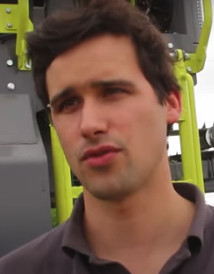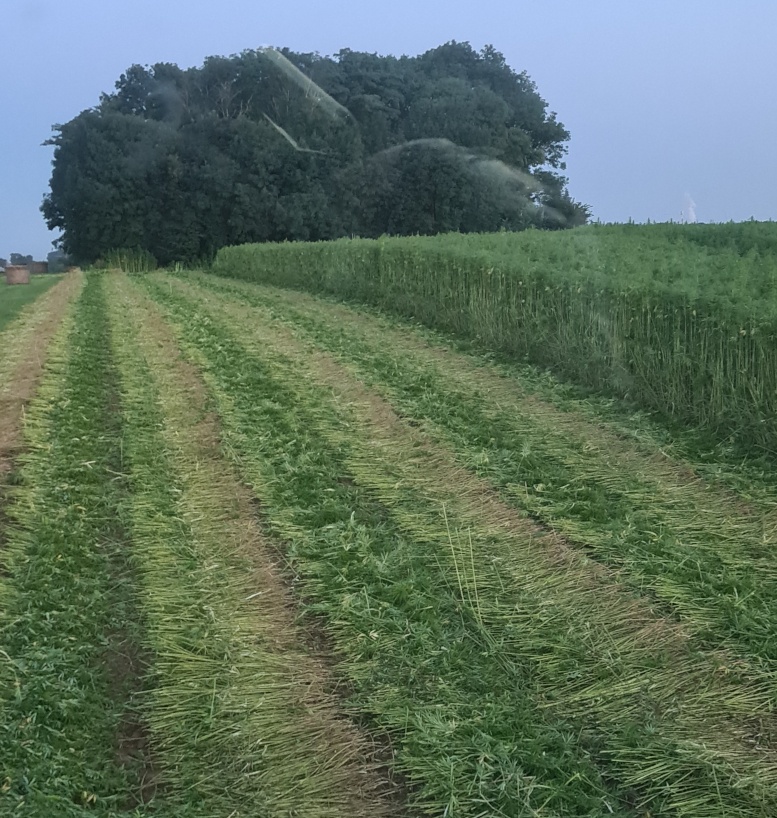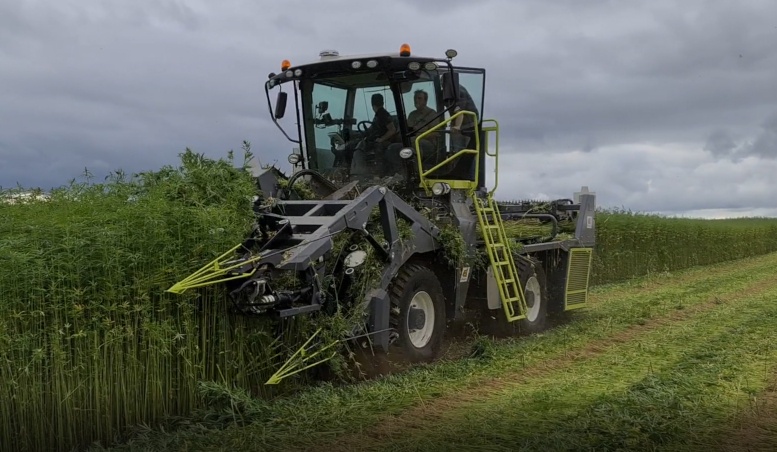Belgian custom equipment maker Hyler BV has introduced a new hemp harvester that gives flax farmers an additional crop option while signaling the rebirth of hemp textiles in Europe. And with additional components designed for the machine, the Sativa 200, growers can also collect leftover cut straw and plant tops in a quick-change 17-cubic-meter bunker mounted on the back of the unit.
It’s the first hemp-focused technology from Wielsbeke, Belgium-based Hyler, which already has two flax harvesting models and a square baler in its portfolio.
Flax growers interested

“Farmers who grow flax are very interested in hemp as an additional crop to spread their risk in cultivation and marketing,” said Niels Baert, Hyler’s founder and owner. “However, until now there were no machines to harvest hemp fiber in separated swaths efficiently, to parallelize the top section of the stalk and the foot separately on the field.”
The new technology, priced at roughly €300,000, can harvest up to two hectares per hour, a pace similar to flax harvesters.
Based on the engineering fundamentals of Hyler’s flax harvesters, the Sativa 200 can cut down hemp plants 1.4-3.0-meters in height; swath length can be adjusted to between 0.6-1.3 meters. Onboard controls let the machine’s operator lay the hemp straw in perfect parallel rows for efficient processing in the next stages. The final straw lengths match standards used in flax processing, a factor critical to making the Sativa 200 attractive to flax growers, Baert said.
Key partnership
The new harvester was developed by Hyler from scratch in six months, working with technology partner Bosch Rexroth NV on the programming. Bosch Rexroth also supported development of the software behind Hyler’s flax machines. The development team behind the Sativa 200 brings 11 patents and more than 40 years combined knowledge and experience in building fiber harvesting and processing solutions. Baert said Hyler also established partnerships with leading suppliers and research institutions in its mission to provide an added-value hemp harvesting solution for its clients.
In addition to technology development, Hyler puts a strong emphasis on after-sales service and fine tuning of the machines it sells, working closely with customers to make sure its harvesters operate at maximum efficiency and meet individual client needs.
Supply chain fit
Hyler sold its first Sativa 200, a prototype, to French linen co-op Linière Du Nord De Caen, after demonstrating the machine’s ability to process the stalks and lay them down for field retting. Linière Du Nord De Caen, based in Villons-les-Buissons, is among enterprises that make up a thriving flax industry in Normandy, where scutching factories from Bayeux to Dunkirk produce 80% of the world’s linen from roughly 150,000 tons of long fibers processed each year. Linière Du Nord De Caen’s factory in the commune of Villons-les-Buissons turns out 24,000 tons of flax yarn annually.
With a new scutching factory having recently opened in nearby St-Manvieu-Norrey, the Sativa 200 slips perfectly into the already existing local fiber supply chain in Normandy. Local officials say hemp farming and processing of textiles could replace sugar beet production in the region while playing a major role in France’s contribution to the wider European Green Deal. Because of the hemp plant’s outsize ability to absorb CO2, hemp can be a major factor the European Union’s program to develop more sustainable industries, Baert noted.


